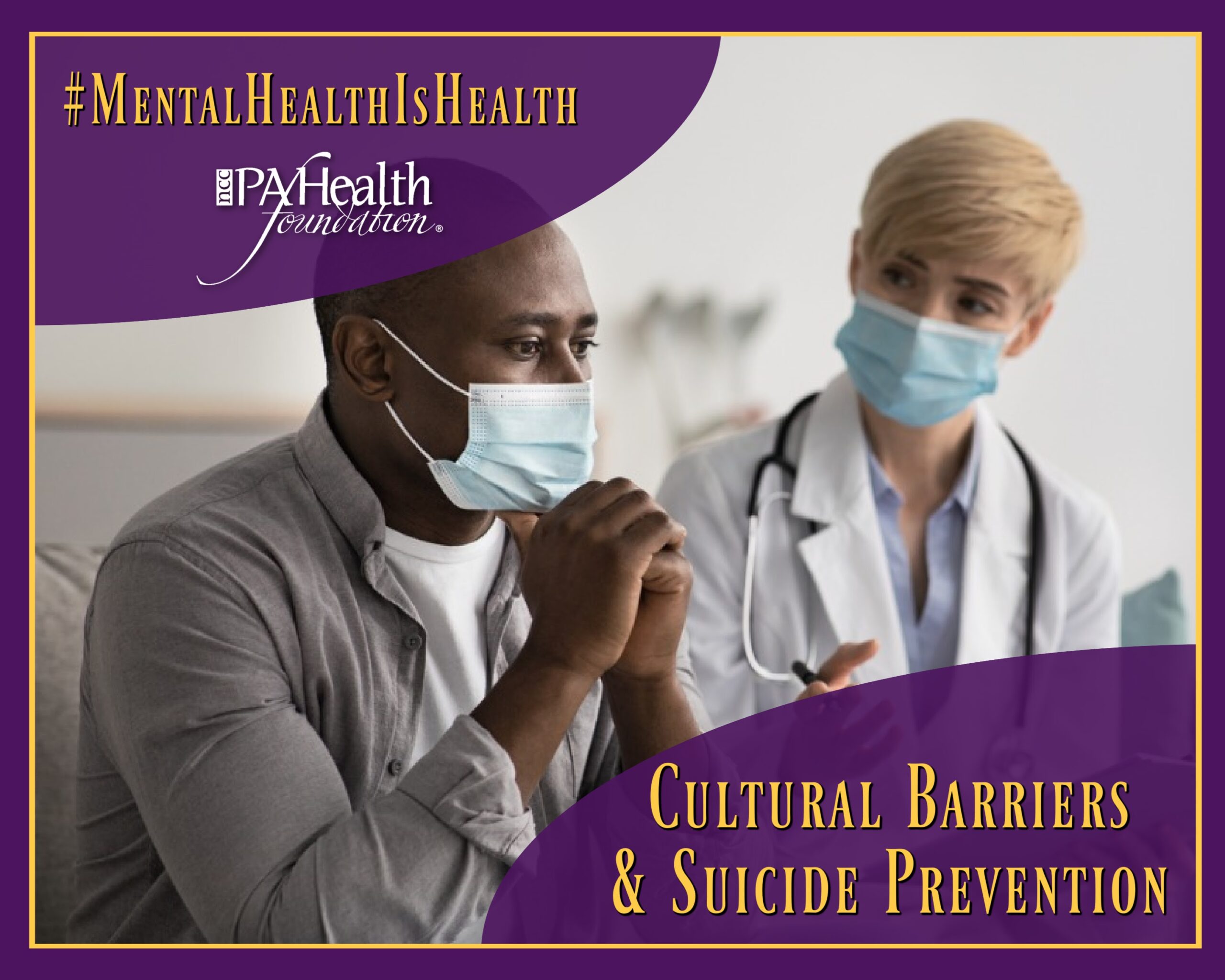Cultural Barriers and Suicide Prevention
Cultural barriers impact suicide prevention. As providers, we care for many different populations, which means being aware of how to engage in prevention efforts most effectively.
Barriers vary by race, ethnicity, religious affiliation, gender, sexual orientation, etc. Understanding and educating ourselves about cultural barriers faced by the individuals we treat is a first step. For example, is suicide or suicidal ideation taboo in the patient’s culture?
Additional cultural barriers could include perceptions of mental health, acceptable forms of treatment, belief systems, experiences of discrimination and historical trauma, and perspectives regarding individualism versus collectivism.
Being aware can open the path for improved health outcomes for these patients. Outside of personal learning to enhance our own cultural competencies and humility, providers can leverage strategies to address potential barriers:
- Understand the patient’s language. If language is a barrier, use SAMSHA’s Find Treatment Tool to search for providers that offer services in different languages.
- Be aware of how your words could be interpreted to avoid shameful or stigmatizing language.
- Address reluctance to seek help and identify opportunities to engage a family member or community support system.
- Help patients navigate the health care system. Understanding when we may not meet the cultural competencies to care for a patient’s mental health is crucial to their continuity of care and could offer an opportunity to refer to another professional better suited to their needs. Finding the right provider or therapist may be challenging, although local mental health organizations are often able to connect patients and providers with the appropriate support.
Get started by plainly asking patients about suicidal thoughts and know talking about suicide does not encourage suicide. Rather, it allows providers to connect patients with needed resources and support.

- Resources:
- APA’s Educational Resources for Diversity & Health Equity: https://www.psychiatry.org/psychiatrists/diversity/education
- Suicide Prevention Resource Center:
- Racial and Ethnic Disparities: https://sprc.org/about-suicide/scope-of-the-problem/racial-and-ethnic-disparities/
- Suicide Prevention Toolkit for Primary Care Practices: https://sprc.org/settings/primary-care/toolkit/
- American Foundation for Suicide Prevention: https://afsp.org/mental-health-resources-for-underrepresented-communities
- NAMI Identity and Cultural Dimensions: https://www.nami.org/Your-Journey/Identity-and-Cultural-Dimensions
- National Suicide Prevention Lifeline – 1 800 273 TALK (8255) or 988
- National Crisis Text Line – Text HOME to 741741
References:
- Cerebrum, Cross-Cultural Barriers to Mental Health Services in the United States: https://www.ncbi.nlm.nih.gov/pmc/articles/PMC3574791/#b2-cerebrum-05-11
- Mayo Clinic Proceedings, Practical Suicide Risk Management for the Busy Primary Care Physician, https://www.ncbi.nlm.nih.gov/pmc/articles/PMC3146379/
Psychiatry Advisor, Suicide Prevention and Intervention: Cross Cultural Perspectives: https://www.psychiatryadvisor.com/home/topics/suicide-and-self-harm/suicide-prevention-and-intervention-cross-cultural-perspectives/

